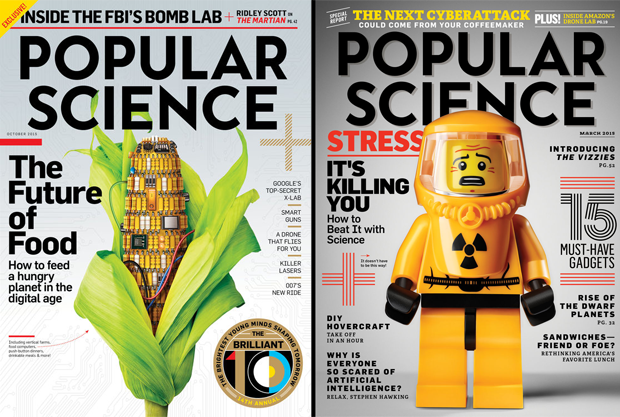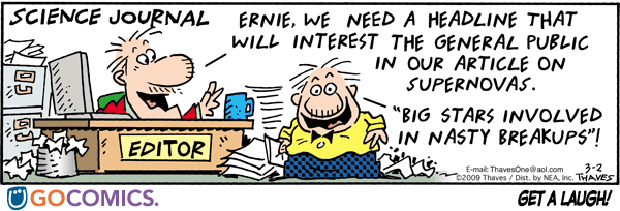'Science is changing, and will change, our world'

In celebration of Science Literacy Week (Sept. 19 to 25), the Concordia news desk is highlighting a related story every day. Check out Monday's Wiki for women in STEM!, Tuesday's 6 cool Concordia science courses for non-scientists and Wednesday's Rocketry and robotics at Space Concordia.
Meet David Secko, chair of Concordia’s Department of Journalism.
Before joining the university almost 10 years ago, Secko worked for such publications as The Scientist, Science Creative Quarterly and the Canadian Medical Association Journal. He also leads the Concordia Science Journalism Project.
We asked him to clarify the essentials of science journalism.
What is science journalism?
David Secko: There is no widely agreed upon definition. I do it because I love to learn about the world and how it works, and then create evidence-driven stories for others.
There is definitely a strong interest in science and society as a focus, or beat, which drives many journalists to define themselves as “science journalists.” Despite there not being a standard definition, in our research to gather the lived experiences of science journalists, we often find they talk about several common elements to their work:
One, it involves finding and using scientific experts. Two, they make use of scientific explanation and argumentation in their work. Three, many science journalists work to assess evidence and give it appropriate weight in their work. Four, they try to connect science to everyday experience and important cultural, economic, political and social contexts. Five, many science journalists see entertainment and enterprise as part of their jobs (albeit this last one is more variable).
If I had to put this all together, I’d say science journalism is creating good science stories that matter.
Why do you teach science journalism?
DS: Science is changing, and will change, our world. It underwrites our economy, and many political and ethical debates. It is a subject of importance that legitimately requires public discussion.
We need people who are dedicated to engaging and generating such discussion in a way we can all appreciate.
I also see science and the media as becoming ever more intertwined, and see many people concerned about the rise of misinformation related to science and health information. This is linked to the ongoing debates about the quality of science journalism and the role of journalism professors in raising the bar.
I would like to help students who want to be science journalists engage deeply in these realities and how science affects our lives. It has been my passion since joining Concordia in 2007 to give students the tools they need to cover science and create excellent evidence-based narratives for their audiences.
It’s back to asking students: how do we best create good science stories that matter?

Who makes the best science journalists — and do you need a scientific background to be one?
DS: There’s no easy answer here, and this is part of the lure of being a science journalist. There are so many different ways to do it and do it well!
I often gravitate to science journalists who embody various values such as storytelling, science literacy, curiosity about the world and a desire to entertain, but who have taken these hard-won traditions and combined them with new skills like digital media, web design, data mining and an entrepreneurial spirit.
There is no doubt, you will need to learn the science, genuinely understand it and be fluent in scientific explanation and argumentation. For some, this is best gained by doing undergraduate or graduate training in a scientific field.
I went this route and immersed myself in microbiology before emerging to write about it and beyond. I also decided to complete a journalism degree after my scientific studies. Others learn on the job and get along fine. This is a debate in the field that really comes down to individual aptitudes and desires.
What kinds of jobs are students with science journalism experience eligible for?
DS: Obviously, if you are keen on science and journalism, you are usually looking to work in journalism or a related media field.
Many students talk to me about Quirks and Quarks with Bob McDonald, about writing for Québec Science, Scientific American, Popular Science, the Science Times and the New Scientist, or joining a science TV show. These are aspirations that demonstrate their desire to work in a place that covers science for a variety of audiences.
Digital publishing is a growing destination for students as well. But those who can communicate science effectively also open doors to work for universities, industry, museums, hospitals and so forth — basically, think of all those places that need to tell stories about their scientific work.
Who are some of your favourite science journalists?
DS: There are too many to mention! Instead, I suggest those interested in science journalism start learning from others on the Open Notebook page "The story behind the best science stories."
Find out more about Concordia's Department of Journalism.


